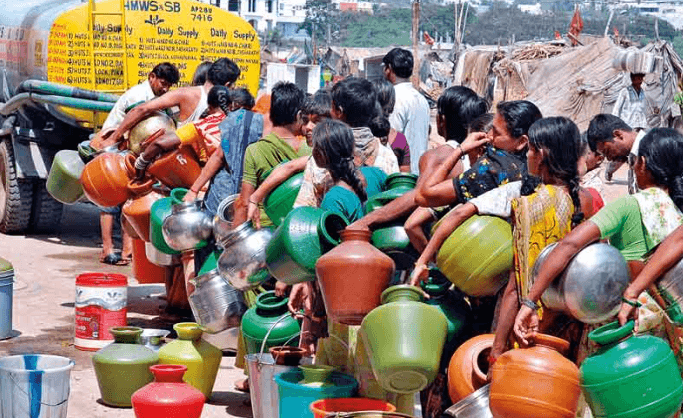A recent report on improving water efficiency in India’s agriculture sector has sounded alarm bells, projecting severe water scarcity for the country by 2050.
India, already grappling with significant water stress, is poised to bear the brunt of escalating water shortages, with approximately 50 percent of its districts anticipated to face severe water scarcity within the next three decades. The report, titled “Transforming Crop Cultivation: Advancing Water Efficiency in Indian Agriculture,” underscores India’s precarious water situation, exacerbated by a widening demand-supply gap. By 2050, the country is projected to experience a 15 percent decrease in per capita water availability, juxtaposed with a staggering 30 percent increase in water demand. These projections paint a grim picture of India’s water future, necessitating urgent action to avert an impending crisis. With India harbouring only 4 percent of the world’s freshwater resources to support nearly 17 percent of the global population, the challenge of water scarcity looms large. Currently, two-thirds of the population grapples with water scarcity, highlighting the pressing need for sustainable water management practices. The report identifies agriculture as a significant contributor to India’s water crisis, accounting for approximately 80-90 percent of overall water withdrawals. The intensive cultivation of water-intensive crops such as rice, sugarcane, and wheat further exacerbates the strain on water resources, with these crops collectively constituting 90 percent of India’s total crop production.
Moreover, inefficient irrigation practices and low water use efficiency exacerbate the water crisis, with conventional surface irrigation methods yielding a meagre 35 percent efficiency. In contrast, other countries boast irrigation application efficiencies ranging from 50 to 60 percent, underscoring India’s need to adopt more efficient farming techniques. Addressing the water-intensive cultivation of rice and sugarcane, which collectively consume 60 percent of agricultural irrigation water, emerges as a critical priority. Water-efficient and sustainable cultivation practices for these crops can play a pivotal role in mitigating India’s water woes, offering a pathway towards more resilient agricultural systems. As India navigates its water challenges, the imperative for transformative action in water management and agricultural practices becomes increasingly apparent. Failure to address these issues could not only jeopardise food security but also exacerbate socioeconomic disparities and environmental degradation, underscoring the urgency of concerted efforts to secure India’s water future.


